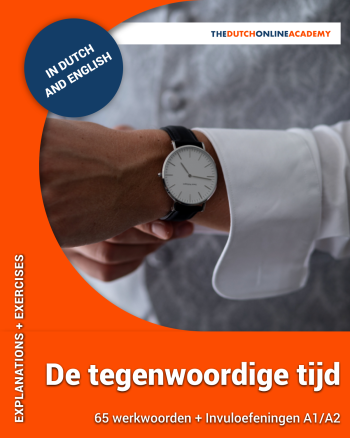Learn the theory
Praten over de toekomst
Er zijn drie manieren om over de toekomst te praten in het Nederlands
1. presens + tijdindicatie
Gebruik de tegenwoordige tijd (presens) en een tijdsindicatie (morgen, straks, volgende week, volgend jaar, in 2025, etc.)
- Ik moet morgen werken
- Wij kijken vanavond een film.
- Zondag komt Maria op bezoek.
2. gaan + infinitief
Combineer gaan met een infinitief. Je kunt ook een tijdsindicatie toevoegen.
- Ik ga werken.
- Ik ga morgen werken.
- Henk gaat een cursus volgen.
- Jullie gaan reizen.
3. zullen + infinitief
Er zijn drie manieren om zullen te gebruiken.
1. Een suggestie
By starting the sentence with zullen you form a suggestion, like you would with shall in English.
- Zullen we stoppen?
- Zal ik de was doen?
- Zullen we naar de bioscoop gaan?
2. Een belofte
- Ik zal op tijd komen.
- Wij zullen er zijn.
- Ik zal je helpen.
3. Een voorspelling
- Het zal een succes zijn.
- Het zal koud worden.
- Piet zal tevreden zijn.
- We zullen rijk worden.
- Tim zal weer te laat zijn.
comments
Login to leave a comment


